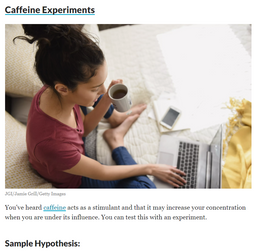top of page
Reliability of Information
Using the C.R.A.A.P(Currency, Relevance, Authority, Accuracy, Purpose)
Method
On the internet there are scams and fake news floating around. But how do we know if the information is true or untrue? The C.R.A.A.P method is a way to cite a website to ensure that your getting the right information. When going on a website you need to ask questions like When was it last updated? Is it relevant to what I'm trying to find? Who is the author? Is it accurate? and what was the purpose when the author made it? asking questions like these can really benefit you in finding the right information to whatever your doing.
Currency and Authority
The first thing you want to check is when was it last updated and the author. Why is that so important? If the website that your on was update more than a few years ago, you know the information isn't a reliable. That information might not be as accurate to what recent studies have shown and it could also be a scam. When checking for the author you want to search up the author's name. Usually when you search up a celebrity or anyone, there name comes out in the right hand side of the screen along with information about them. If there is no image or information about the author, the information on that page is untrue. Therefore, checking the date and the author is very important.
An example: Let's use the previous example used in the Tips for Online Searching slide. The question being searched was easy science labs for high school students -projects. When clicked on the website. Check the site for a date, for it will effect the outcome of your lab. If the website was updated more than a 2 years, a lot could go wrong if you didn't check the current date(e.g. What if the company of the materials required on the list no longer sells the product? what if the ingredients of the materials changed?). Then check and search up the authors name. Is this person real? What does it say about this person?
Relevance and Accuracy
The second thing you want to check is how relevant and accurate it is. Meaning is it what your looking for? Is it the same when you compare it to other websites talking about the same thing? Checking accuracy and relevance is how you get the most accurate information on the site. This is the most important step. You tell if it's accurate by comparing it to other websites talking about the same thing and by checking the the URL. If the website your on doesn't match all the other sites, then you know it's not the right one. The URL code of the website says a lot of what kind of website it is. As you can see on the image below of reading URL's the 3rd, 4th, and 5th are mostly unreliable sources. while the 1st and 2nd seem more reliable. However, that isn't always true, which is why you always need to look closely.
Purpose
The last thing you need to look at is the purpose. What was the authors purpose in making that site? If you can tell it was made to help people with their information then that's different from having the author make it out of a joke or to sell you something. the person who made this website seem genuinely trying to help people come up with lab ideas.

bottom of page






